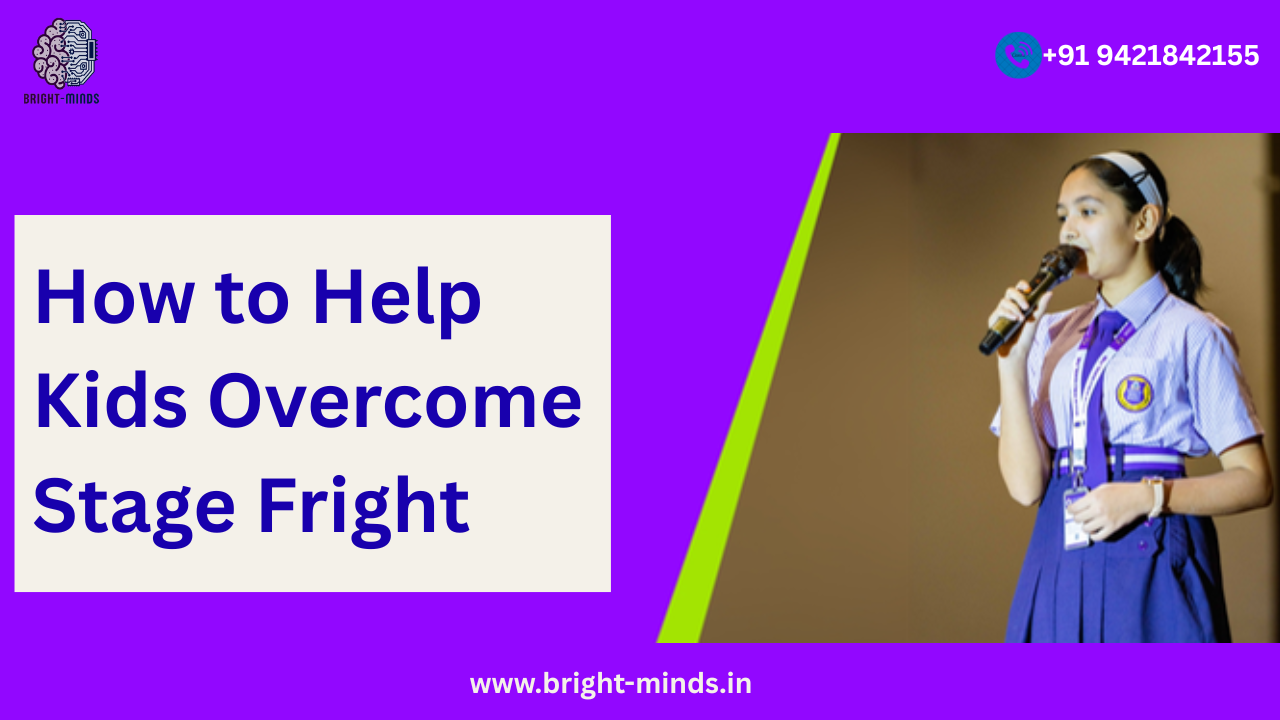- Normalize Their Fear
🌱 Let them know it’s okay to feel nervous
Why it works:
Stage fright is a natural response, even for adults! Let your child know that feeling nervous or anxious before performing is normal, and many people feel the same way. Reassuring them that everyone experiences some stage fright can reduce their fear and help them accept it as part of the process.
Tip: Share stories of famous performers or even family members who’ve felt nervous before taking the stage. This makes the experience feel less isolating. - Practice, Practice, Practice
🔄 The more they rehearse, the more confident they’ll feel
Why it’s effective:
Confidence comes from preparation. The more your child practices their performance, whether it’s a song, speech, or dance, the more familiar they’ll become with it, reducing anxiety.
Tip: Rehearse in front of a small, supportive audience (family members, friends) before the big performance to help them get used to performing in front of others. - Breathing and Relaxation Techniques
🌬️ Teach them how to calm their nerves
Why it works:
Deep breathing and relaxation exercises can help calm physical symptoms of anxiety, like a racing heart or shallow breathing. Teaching your child techniques like “4-7-8” breathing (inhale for 4 seconds, hold for 7, exhale for 8) can help them regain control when nerves take over.
Bonus: You can also introduce visualization techniques—ask your child to close their eyes and imagine themselves performing confidently and enjoying the experience. - Focus on the Positive Outcome
🌟 Encourage a positive mindset
Why it’s helpful:
Encourage your child to focus on the excitement of the performance, rather than the fear. Help them visualize a successful outcome, and remind them that the audience is supportive and there to enjoy their performance.
Tip: Discuss what your child enjoys about performing or what they’re excited to share with the audience, such as a funny moment or a special skill. - Celebrate Effort, Not Perfection
🎉 Focus on the experience, not the result
Why it’s important:
Let your child know that it’s okay if everything doesn’t go perfectly. The most important part is that they gave it their best shot. Celebrate their courage to perform, whether or not they make a mistake. This helps take the pressure off and makes them more likely to try again in the future.
Tip: After the performance, ask them what they enjoyed most and what they’re proud of. This helps them focus on the positive aspects of the experience.
💡 Additional Tips to Help Kids Build Confidence for the Stage
- Create a pre-performance routine: Help your child develop a calming pre-performance routine, like a short dance, a deep breath, or even a “lucky” item they wear.
- Keep performances low-pressure: Start with low-stakes performances—maybe a family talent show or reading in front of a class—to build their confidence before bigger events.
- Encourage supportive feedback: Teach your child to accept and offer constructive feedback in a positive way. This helps them view criticism as a tool for improvement rather than a source of fear.
Tip: Praise your child for their bravery in getting up on stage, no matter the outcome. Reinforcing their courage helps build a growth mindset.
🏫 Why Confidence Matters
At Bright-Minds, we believe that overcoming stage fright is not just about performing on stage—it’s about building confidence and resilience. These skills help children face challenges head-on and feel empowered to express themselves in any situation.
🌟 Final Thoughts
Stage fright is a common obstacle, but with the right support and strategies, your child can overcome it and shine on stage. By normalizing their feelings, giving them the tools to calm their nerves, and celebrating their efforts, you’re helping them grow into a confident, self-assured individual who is ready to take on new challenges.
You may be like this:-

